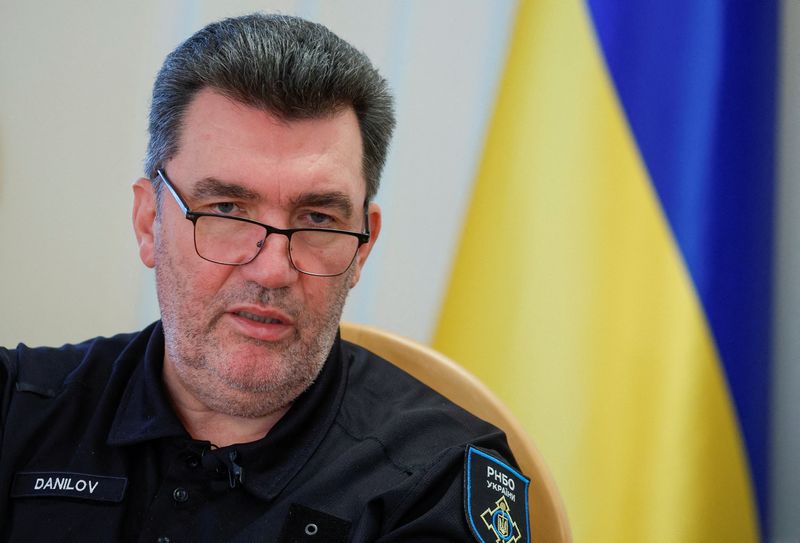By Dan Peleschuk
KYIV (Reuters) - A top security adviser to Ukrainian President Volodymyr Zelenskiy said on Sunday that Russian plans to station tactical nuclear weapons in Belarus would destabilise that country, which he said had been taken "hostage" by Moscow.
Russian President Vladimir Putin announced the decision on Saturday, sending a warning to NATO over its military support for Ukraine and escalating a standoff with the West.
Although the move was not unexpected and Putin said it would not violate nuclear non-proliferation promises, it is one of the Russia's most pronounced nuclear signals since the beginning of its invasion of Ukraine 13 months ago.
Oleksiy Danilov, head of Ukraine's National Security and Defence Council, called it "a step towards internal destabilization of the country" adding it maximizes what he called the level of "negative perception and public rejection" of Russia and Putin in Belarusian society.
"The (K)remlin took Belarus as a nuclear hostage," he wrote on Twitter.
Putin likened his plans to the U.S. stationing its weapons in Europe, and said Russia would not be transferring control of the weapons to Belarus. However this could be the first time since the mid-1990s that Russia has based such weapons outside the country.
Washington, the world's other nuclear superpower, played down concerns about Putin's announcement and the potential for Moscow to use nuclear weapons in the war in Ukraine.
"We have not seen any reason to adjust our own strategic nuclear posture nor any indications Russia is preparing to use a nuclear weapon. We remain committed to the collective defence of the NATO alliance," a senior U.S. administration official said.
The official noted that Russia and Belarus had been speaking about the transfer of nuclear weapons for some time.
Analysts at the Washington-based Institute for the Study of War (ISW) said in a note late on Saturday that the risk of escalation to nuclear war "remains extremely low".
"ISW continues to assess that Putin is a risk-averse actor who repeatedly threatens to use nuclear weapons without any intention of following through in order to break Western resolve," it wrote.
However, the International Campaign to Abolish Nuclear Weapons called Putin's announcement an extremely dangerous escalation.
"In the context of the war in Ukraine, the likelihood of miscalculation or misinterpretation is extremely high. Sharing nuclear weapons makes the situation much worse and risks catastrophic humanitarian consequences," it said on Twitter.

Putin said that Belarusian President Alexander Lukashenko had long requested the deployment. There was no immediate reaction from Lukashenko.
While the Belarusian army has not formally fought in Ukraine, Minsk and Moscow have a close military relationship. Minsk allowed Moscow to use Belarusian territory to send troops into Ukraine last year and the two nations stepped up joint military training.